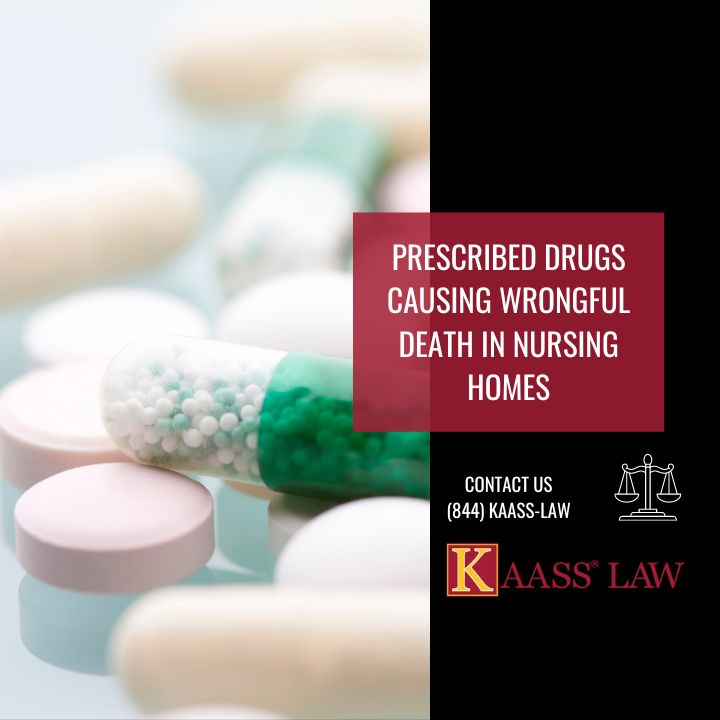Prescribed drugs suppose to help individuals manage their health conditions, but in some cases, they can lead to wrongful deaths, particularly in nursing homes. Nursing homes provide care to vulnerable populations, including elderly and disabled individuals who require around-the-clock medical attention. Unfortunately, nursing home residents are also at risk of having their medications given incorrectly. This can lead to wrongful death. In this blog, we will explore wrongful death claims resulting from prescribed drugs in nursing homes.
Understanding Wrongful Death From Prescribed Drugs
Wrongful death is described as a death caused by the carelessness of another person or thing. Wrongful death claims may be filed when nursing home patients are over or wrongly administered drugs, resulting in their death.
Overmedication and Improper Medication in Nursing Homes are Grounds for Liability
Nursing homes are responsible for making sure that residents receive the proper care, including the medication and medical attention they require. However, residents might experience serious injury, including wrongful death, when nursing homes don’t offer adequate care.
Overmedicating occurs when professionals give a resident more prescription medication than is necessary or safe. Numerous factors, such as insufficient personnel levels, ineffective medicine administration, or a lack of medical oversight, may contribute to this. Overmedication may be done on purpose on occasion, such as when a resident’s demeanor is under control with medication.
Improper medication occurs when staff gave a resident the wrong medication or dosage. This can result from a lack of communication between medical professionals, inadequate training of staff, or errors in medication administration.
Establishing Liability in a Wrongful Death Claim From Prescribed Drugs
To establish liability in a wrongful death claim resulting from overmedication or improper medication in a nursing home, plaintiffs must prove that the nursing home was negligent. As well as, that their negligence caused the resident’s death. This may involve demonstrating that the nursing home failed to provide appropriate medical care. Also, staff members may have inadequately been training in medication administration.
Additionally, plaintiffs may need to prove that the nursing home knew about the unsafe conditions and didn’t take appropriate action. For example, if a resident had previously had adverse reactions to medication but was still taking it, this could be evidence of negligence on the nursing home’s part.
Damages in a Wrongful Death Claim
In a wrongful death claim resulting from overmedication or improper medication in a nursing home, damages may include funeral expenses, medical bills, and loss of income. Additionally, surviving family members may get compensation for their emotional suffering, loss of companionship, and other non-economic damages.
The number of damages awarded in a wrongful death claim can vary widely depending on the specific circumstances of the case. For example, if the nursing home’s negligence was particularly egregious, the damages may be higher. Similarly, if the resident who died was a primary breadwinner for the family, the damages may be greater.
Preventing Wrongful Death in Nursing Homes
Preventing wrongful death in nursing homes requires nursing homes to take responsibility for ensuring that their residents receive appropriate medical care. Including appropriate medication administration. This includes ensuring that staff employees have correct pharmaceutical administration training and that drug administration is constantly under monitor. Also, medical professionals are available to address any adverse reactions or complications.
Additionally, families can take steps to protect their loved ones from overmedication and improper medication in nursing homes. This includes staying informed about their loved one’s medical care. As well as, monitoring medication administration, and reporting any concerns to nursing home staff or medical professionals promptly.
Contact Attorney Today
Wrongful death resulting from prescribed drugs in nursing homes is a tragic and preventable outcome. Nursing homes have a legal obligation to provide appropriate medical care to their residents, and when they fail to do so, they may be liable for the resulting harm. Establishing liability in a wrongful death claim requires proof.
Give us a call for a free consultation at 310.943.1171 or visit our website for other practices.

